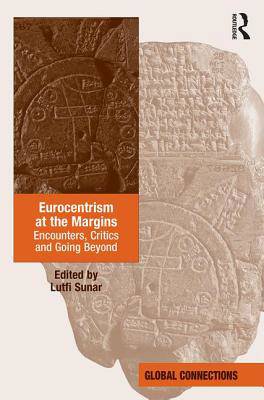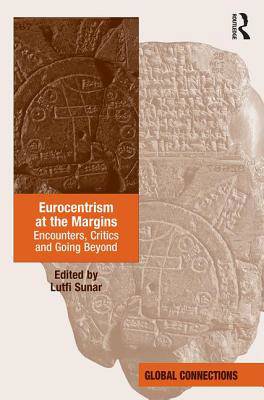
- Afhalen na 1 uur in een winkel met voorraad
- Gratis thuislevering in België vanaf € 30
- Ruim aanbod met 7 miljoen producten
- Afhalen na 1 uur in een winkel met voorraad
- Gratis thuislevering in België vanaf € 30
- Ruim aanbod met 7 miljoen producten
Zoeken
Eurocentrism at the Margins
Encounters, Critics and Going Beyond
€ 202,95
+ 405 punten
Omschrijving
Eurocentrism remains a prevailing feature of Western-dominated social scientific perspectives, tending to ignore alternative views originating outside the West and thus maintaining a form of scholarly hegemony. As such, there is an urgent need to reconsider Eurocentrism in social science, to ask whether it constitutes an obstacle to understanding social problems and whether it is possible to go beyond Eurocentrism in the construction of reliable, more universal knowledge. At the same time, certain questions persist, particularly with regard to the extent to which recent revisionist challenges have really contributed to the surmounting of Eurocentric domination, and whether the constant repetition of the concept serves to reinforce it. This book engages with the central problems of Eurocentrism in the social sciences, bringing together the work of scholars from around the world to offer a critique of this perspective from both European and non-European positions, thus shedding light on the binaries that often come into being in debates in this field. Thematically organised and addressing a range of questions, including Eurocentrism in historical studies, in the understanding of religion and civilisation and in the study of international relations, as well as in the institutionalisation and professionalisation of research and discourses on modernisation in the Middle East, Eurocentrism at the Margins will appeal to scholars with interests in knowledge production and circulation, and Eurocentrism and post-colonialism in the social sciences.
Specificaties
Betrokkenen
- Uitgeverij:
Inhoud
- Aantal bladzijden:
- 238
- Taal:
- Engels
- Reeks:
Eigenschappen
- Productcode (EAN):
- 9781472466440
- Verschijningsdatum:
- 20/05/2016
- Uitvoering:
- Hardcover
- Formaat:
- Genaaid
- Afmetingen:
- 157 mm x 234 mm
- Gewicht:
- 476 g

Alleen bij Standaard Boekhandel
+ 405 punten op je klantenkaart van Standaard Boekhandel
Beoordelingen
We publiceren alleen reviews die voldoen aan de voorwaarden voor reviews. Bekijk onze voorwaarden voor reviews.










